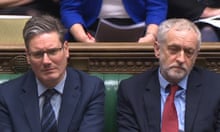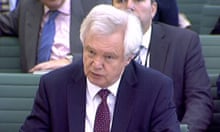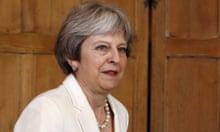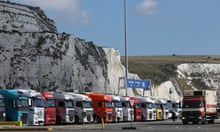Back in 2007, Liam Byrne, then minister for immigration, decided to create a new, independent advisory committee to help the government set migration policy. He told me at the time that he hoped it would – as the monetary policy committee had done for interest rates – depoliticise the issue.
Things didn’t work out quite the way he planned. Immigration continues to be at the centre of the political debate. And that means the work of the labour market economists who make up the migration advisory committee (Mac) is not just technical economic analysis, but has important political implications.
Indeed, the government’s inability to take decisions on what the post-Brexit migration system would look like has meant that the Mac has, by default, become the only game in town.
Originally the government planned to publish a white paper on the post-Brexit immigration system last summer. That’s now been postponed until the end of this year. The Mac has been commissioned to analyse the impacts of migration from the EU, with a report to be published in September. That will inevitably play a major role in shaping the future system.
So what does today’s “interim report”, based mostly on evidence submitted by employers, tell us? First, that employers are very worried about the potential impact of ending free movement. This perhaps is no surprise.
But it’s worth noting that this extends across a wide range of sectors and ranges far beyond the stereotype of EU migrants filling low-skilled, low-paid jobs. For example, the Mac discussion of the media and communications sector notes that it has much higher than average wages, that productivity has “soared” recently, and that migration has been the “driving force behind the sector’s recent growth”. Employers in the sector, for their part, say that without access to European workers, they would struggle to maintain this growth.
Second, the report debunks a number of myths, in particular the claim that employers deliberately choose to recruit migrants rather than natives.
The Mac says: “The vast majority of employers do not deliberately seek to fill vacancies with migrant workers. They seek the best available candidate. When a European Economic Area (EEA) migrant worker gets a job, it is because the employer thinks they are the best, sometimes the only, qualified applicant.”
Nor, taking into account occupation and so on, are there big wage gaps – even workers from new EU member states earn only about 4% less, while other EU migrants are paid much the same as UK-born workers. The Mac has no time at all for claims that immigration has had much to do with the abysmal performance of UK real wage growth since the financial crisis.
And while there is significant concern about exploitation and unfair treatment of migrant workers, it is notable that the MAC concludes that EU migrants are, if anything, less likely to be paid less than the minimum wage than UK-born workers; migrants from outside the EEA are significantly more likely to be underpaid.
It’s not hard to work out why this might be the case – non-EEA migrants, particularly if their right to be here is tied to their job, or if their immigration status is questionable, may not be able push back against bad employers. EEA workers can just walk. Free movement is good for workers’ rights – an often unappreciated point.
But while there’s no evidence here of widespread undercutting of wages, the report also pushes back against claims by some employers that increasing wages wouldn’t make it easier to recruit British-born workers. Of course it would, and some people would be better off.
But it also notes that doesn’t mean making it harder for employers to recruit workers by reducing immigration would necessarily increase wages or living standards for the rest of us. Some firms would simply shrink or go out of business, and prices might rise.
So what does all this tell us about a post-Brexit immigration system? Much will depend on the new evidence the Mac has commissioned to underpin its final report in September. And the fact that the Mac has been given the time and space to do its job properly is welcome. But this is still a damage limitation exercise. Free movement has been good for the UK economy and public finances, and when it ends there will be consequences.
But perhaps the most important point – often ignored in this debate, but made by Alan Manning, the Mac’s chairman, in his foreword to this report: “Migrants have a choice and it cannot be taken for granted they will choose to come to the UK.”
Migration from Europe fell sharply after the Brexit vote – even though nothing has changed yet. As the consequences for employers and public services become increasingly apparent, politicians should remember that immigration may be just as big a problem when it is falling as when it is rising.










